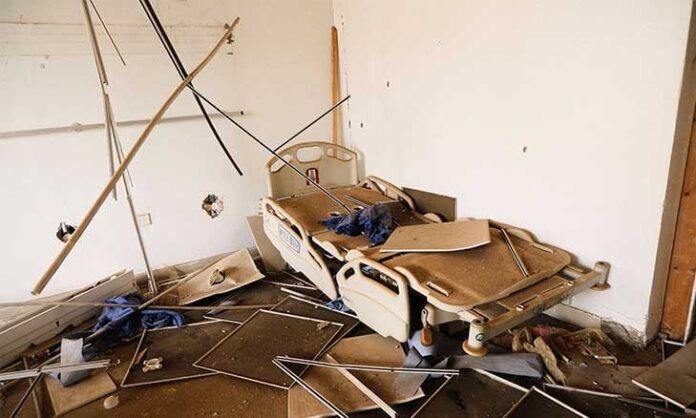Khartoum – The Sudan Doctors’ Network announced a relative improvement in the health situation in the capital, Khartoum, during 2025, more than two years after the outbreak of the war on April 15, 2023, which led to the near-total collapse of the health sector in the state and caused losses exceeding $14 billion.
In a press release issued on Sunday, the network said the number of operating hospitals had risen from just seven during the peak of the war to 34 currently. In addition, 214 health centers across the state’s localities have resumed service, helping to ease the burden on hospitals and strengthen primary health care services for citizens.
According to a report issued by the network’s medical team monitoring developments in the health sector in Khartoum, the war forced 73 out of 80 private hospitals to close, due to destruction and looting, as well as the conversion of some facilities into military barracks.
The report estimated the total losses inflicted on the health sector at more than $14 billion, making rehabilitation efforts more complex and in greater need of support.
Despite this notable improvement in the number of institutions resuming operation, the network stressed that the overall health situation remains fragile, with clear gaps in service provision, as capacity and the availability of essential services differ greatly from one locality to another.
It also noted that 46 hospitals remain out of service, underscoring the urgent need for further technical and logistical support to ensure these facilities can resume operations and to achieve sustainable stability in health care provision.
The network highlighted the conditions that led to this collapse, explaining that Khartoum was under the control of the Rapid Support Forces (RSF) for two years, during which many health facilities were subjected to extensive vandalism and looting of equipment and devices. With the army regaining control of the state and residents gradually returning to their homes, the state has faced waves of disease outbreaks such as cholera, malaria, and dengue fever, amid deteriorating health and environmental conditions and severe shortages of medicines and medical staff.
Return of 34 hospitals and 214 health centers
The network affirmed that the return of several hospitals and health centers to operation marks a pivotal step in rebuilding the health system. However, it emphasized that this does not signal the end of the crisis, but rather the beginning of a long road to repair the damage caused by the war. It called on government bodies and international organizations to bolster rehabilitation efforts, provide funding, and deliver technical support to ensure continuity of health services, especially in areas still plagued by severe shortages in infrastructure and medical facilities.
The network attached to its report a list of hospitals that returned to service in September 2025. These included Omdurman Maternity Hospital, Omdurman Teaching Hospital, the Tropical Diseases Hospital, Tigani El-Mahi Hospital, Al-Waledein Eye Hospital, Al-Rajhi Hospital, Al-Nau Hospital, Al-Balak Children’s Hospital, and Bar El-Waledein Hospital. Also listed were Umbada Model Hospital, Al-Fath Hospital, Umbada 18 Hospital, Bashair Hospital, Jebel Al-Teena Hospital, Mohamed Al-Amin Hamed Children’s Hospital, and Saudi Women’s and Maternity Hospital.
In Bahri locality, the reopened hospitals included Al-Jazira Islang Hospital, Al-Surorab Hospital, Umm Katti Hospital, Wad Abu Saleh Hospital, Hajj Al-Safi Hospital, JICA Maternity Hospital, Al-Tamayuz Hospital, and Al-Kabashi Hospital. In East Nile locality, facilities that returned to service included New Abu Delig Hospital, Old Abu Delig Hospital, Umm Duwaban Hospital, Al-Ban Jadid Hospital, and Martyr Ali Abdel-Fattah Hospital. In Jebel Aulia locality, Jebel Aulia Hospital, the Turkish Hospital, the Academic Hospital, and Qari Hospital have also resumed service.
The network also noted the reopening of 214 health centers, describing this as a key development in bolstering primary health services and relieving pressure on hospitals, particularly in emergency care. Geographically, the distribution of these centers was as follows: 31 in Bahri, 17 in Khartoum, 27 in Omdurman, 35 in Karari, 32 in Umbada, 40 in East Nile, and 32 in Jebel Aulia.
The Sudan Doctors’ Network underlined that these positive steps represent only the beginning of a long process to rebuild the health system in Khartoum. It stressed that achieving stability in medical services will require sustained support and large-scale investment in health infrastructure and medical personnel to meet the population’s needs during this critical phase of the country’s history.
Al-Quds Al-Arabi | Local sources


